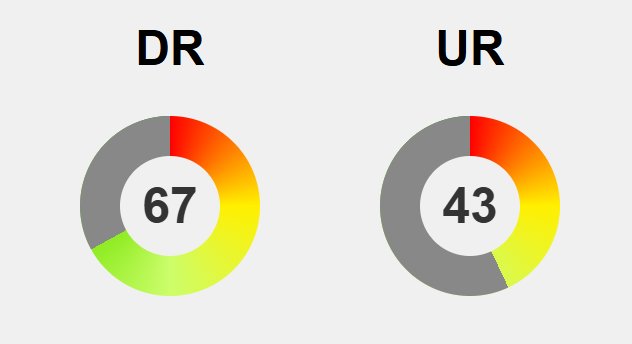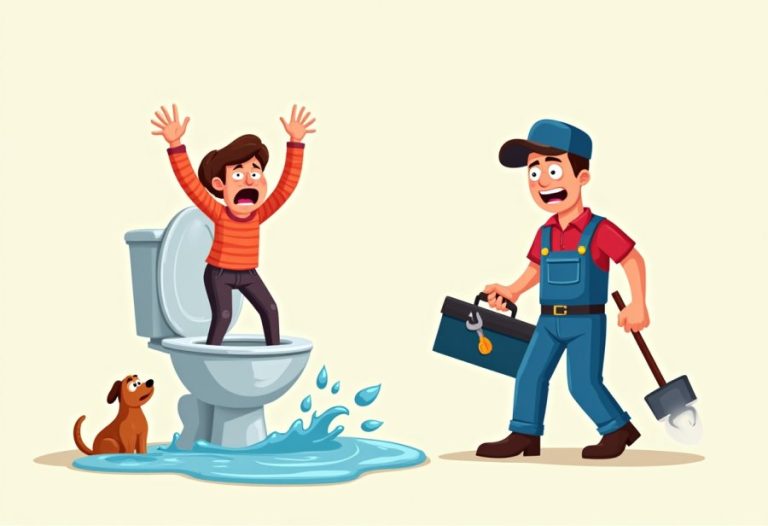Could you be unaware of silent heart vulnerabilities lurking beneath your everyday routine? Cardio stress tests offer a revealing glimpse into your heart’s true resilience by simulating physical exertion and uncovering hidden issues such as narrowed arteries or irregular rhythms that often develop silently over time. This proactive assessment goes beyond standard checkups, exposing vulnerabilities before symptoms appear and emergencies strike. But how can a simple test make such a difference? It provides essential insights into how well your heart functions under stress, guiding personalized strategies—from lifestyle modifications to medical interventions—to strengthen your cardiovascular health. Whether you’re over 40, have risk factors, or simply want peace of mind, stress testing empowers you to take control of your future well-being. By detecting hidden dangers early, you can pursue an active lifestyle confidently and reduce the risk of unforeseen crises, making this an invaluable tool in safeguarding your long-term health.
Unlocking Heart Health: The Power of Cardio Stress Tests
A cardio stress test is a simple yet powerful tool that helps doctors see how your heart performs when pushed beyond its usual limits. Usually done on a treadmill or stationary bike, the test gradually increases in intensity while monitoring key signs like your heart rate, blood pressure, and breathing. Sometimes, imaging techniques such as ultrasounds or scans are added to get a clearer picture of blood flow and how your heart responds during exercise. This combination provides a comprehensive look at your heart’s resilience and function under stress.
The main purpose of this test is to uncover issues that often stay hidden when you’re at rest. Conditions like narrowed arteries or irregular rhythms can develop silently over time, showing no symptoms until something serious happens. By putting your heart under controlled exertion, stress testing reveals these vulnerabilities early, helping your healthcare team identify potential risks before they escalate into emergencies.
Stress testing isn’t just about diagnosing existing problems. It acts as a proactive check-up, offering insight into how well your heart can handle physical activity. For those with risk factors like high blood pressure, diabetes, or a family history of heart disease, it’s an important step to assess your true cardiovascular health. If your heart handles exertion smoothly, it suggests you’re likely safe to pursue regular exercise. If not, the test results can guide you toward safer, tailored activity plans.
This procedure also serves as a window into your overall fitness level. It helps determine what kind of physical activity is safe and effective for you, ensuring you don’t overexert yourself. Knowing your heart’s capacity allows you and your doctor to set realistic goals, whether you’re starting a new workout routine or recovering from a health scare. It’s about understanding your limits and building confidence in your ability to stay active safely.
Ultimately, a cardio stress test offers peace of mind by providing a clearer picture of your heart’s health. It’s a crucial step in catching silent dangers early, giving you the chance to take preventive action. By revealing vulnerabilities that might otherwise go unnoticed, stress testing empowers you to make informed decisions and stay proactive in protecting your heart for years to come.
Silent Dangers Revealed: Uncovering Hidden Heart Risks
Many heart problems develop quietly, without causing noticeable symptoms, which makes early detection especially challenging. Conditions like narrowed arteries or irregular rhythms can build up slowly over years, often remaining hidden during routine checkups. Because they don’t produce pain or discomfort at rest, these issues can silently threaten your health, increasing the risk of sudden events like heart attacks before you’re even aware of a problem.
This is where stress testing becomes a vital tool. By gradually increasing your heart’s workload in a controlled environment, the test can reveal vulnerabilities that don’t show up when you’re at rest. During exertion, your doctor observes how blood flows through your heart and how electrical signals behave—both of which can change when issues are present. These subtle clues, such as blood flow restrictions or irregular heart rhythms, become more apparent under stress, providing essential insight into your heart’s hidden weaknesses.
Atherosclerosis, the buildup of plaque within your arteries, exemplifies a silent threat. Often developing over many years without symptoms, it can suddenly cause a blockage, leading to a heart attack. Similarly, arrhythmias—abnormal heart rhythms—may occur sporadically and only reveal themselves during physical strain. Without stress testing, these problems can remain unnoticed until they trigger a crisis, making early detection crucial.
Stress tests act as a form of detective work, uncovering abnormalities that might otherwise stay concealed. When your heart is pushed beyond its usual limits, signs of stress or weakness become more evident. This proactive approach helps identify vulnerable areas, such as narrowed arteries or electrical instability, so that you and your healthcare team can address them before they escalate into serious health crises.
Understanding that many heart issues develop silently underscores the importance of regular screening. Stress testing provides a unique window into how your heart truly responds under pressure, revealing dangers that resting exams might miss. Recognizing these hidden risks early allows for timely intervention—whether through lifestyle changes, medications, or further testing—giving you a better chance at avoiding emergencies later on.
The ability to detect these vulnerabilities before symptoms appear can significantly alter your health trajectory. It empowers you to take targeted steps to strengthen your heart’s resilience, rather than waiting for warning signs to emerge. This knowledge can motivate healthier habits and help you make informed decisions about activity levels, diet, and medical care.
In essence, stress testing exposes the secret vulnerabilities lurking beneath the surface. It’s a crucial tool in proactive heart health management, shifting the focus from reaction to prevention. By uncovering silent dangers early, you gain control over your long-term well-being, reducing the risk of unexpected crises and supporting a more active, healthier life.
Early Detection and Prevention: The Benefits of Cardio Stress Testing
Cardio stress testing offers a powerful advantage in managing your heart health by revealing issues that often remain hidden during standard checkups. When your heart is pushed to work harder, subtle signs like irregularities in blood flow or electrical activity become more noticeable, giving doctors vital clues about underlying problems. Spotting these early signs allows for targeted treatment plans—whether through medication, lifestyle changes, or further testing—before minor issues escalate into serious emergencies.
Beyond early detection, stress tests provide a realistic assessment of your heart’s resilience. They help determine how much exertion your heart can safely handle, which is especially helpful if you’re starting a new exercise routine or recovering from a health scare. Knowing your limits enables you to set achievable, safe activity goals, reducing the risk of overexertion and potential complications. This personalized insight empowers you to make smarter choices about your fitness and overall well-being.
Stress testing also enhances risk assessment by uncovering vulnerabilities that might not be visible at rest. For example, a person with narrowed arteries could be symptom-free during routine exams but show significant blood flow restrictions during exercise. Detecting these issues early means you and your healthcare team can take proactive steps—like lifestyle adjustments or medications—to lower your chances of future heart problems. It’s about catching problems before they turn into crises.
Furthermore, the results from stress tests can guide tailored prevention strategies. If your heart responds well to exertion, you can pursue more active lifestyles with confidence. If issues are identified, you and your doctor can develop a cautious, effective plan to improve your heart’s health while minimizing risks. This targeted approach transforms test outcomes into actionable steps that support your long-term well-being.
Implementing these strategies based on stress test findings doesn’t just prevent emergencies; it actively promotes a healthier heart. Adjustments in diet, regular moderate exercise, and stress management techniques can significantly boost your cardiovascular resilience. Tracking your progress with follow-up tests helps fine-tune your approach, making your efforts more effective and sustainable.
In essence, cardio stress testing isn’t just about diagnosing existing problems—it’s a vital tool for prevention and personal empowerment. By revealing hidden vulnerabilities early, these tests allow you to take control of your heart health, making informed decisions that support an active, vibrant life. Prioritizing stress testing as part of your health routine can be a game-changer in maintaining a strong, resilient heart for years to come.
Taking proactive steps based on your stress test results can make a significant difference in your long-term heart health. For additional guidance on how to optimize your cardiovascular wellness, consider exploring comprehensive resources like heart health prevention strategies. Integrating these insights into your routine can help you maintain a healthy, active lifestyle and reduce future risks.
Turning Insights into Action: Optimizing Heart Health Through Testing
Once your stress test results are in, the key is transforming that information into actionable steps to boost your heart health. If vulnerabilities or blockages are identified, your doctor will likely recommend targeted treatments, such as medications, lifestyle adjustments, or additional testing. Addressing these issues early can prevent them from developing into more serious conditions like heart attacks or arrhythmias. Taking immediate steps based on your results empowers you to stay ahead of potential problems before they escalate.
Making practical changes to your daily habits can lead to significant improvements. Adopting a heart-healthy diet rich in vegetables, fruits, lean proteins, and whole grains helps reduce plaque buildup and enhances your cardiovascular function. Incorporating regular, moderate exercise tailored to your capacity not only strengthens your heart but also helps manage blood pressure, cholesterol levels, and weight. These adjustments, guided by your stress test insights, increase your resilience and support long-term heart health.
Tracking your progress over time is essential. Follow-up stress tests can reveal improvements or highlight new concerns, allowing you to adjust your routine as needed. This ongoing evaluation shifts your focus from reactive treatment to proactive management, giving you greater control over your heart’s future. Understanding how your heart responds to different levels of activity helps set realistic goals, keeping you motivated and informed.
Your stress test results also serve as a foundation for personalized prevention strategies. If your heart responds well to exertion, you can confidently pursue more active lifestyles. Conversely, if issues are detected, a cautious approach with low-impact activities like walking or swimming can help build strength without overtaxing your heart. Regular consultations with your healthcare provider ensure your exercise plan remains safe and effective, minimizing risks while promoting progress.
Ultimately, leveraging your stress test outcomes transforms knowledge into power. By making targeted lifestyle changes and adhering to medical advice, you actively strengthen your heart’s resilience and reduce the likelihood of future complications. This personalized, informed approach not only improves your immediate well-being but also lays the groundwork for a healthier, more active life well into the future.
Protecting Your Heart Future: The Importance of Cardio Stress Tests
Cardio stress tests are a vital tool in uncovering hidden heart issues that often develop silently over time. Many conditions, like narrowed arteries or irregular rhythms, remain unnoticed during routine checkups because they don’t produce symptoms at rest. Yet, these unseen vulnerabilities can suddenly surface as emergencies, making early detection essential for prevention.
By simulating physical exertion in a controlled environment, stress testing reveals how your heart responds under pressure. It uncovers weaknesses—such as blood flow restrictions or electrical irregularities—that remain invisible when you’re not active. Detecting these problems early provides a crucial window to intervene before they escalate into serious health crises like heart attacks or arrhythmias.
Understanding the silent nature of many heart issues underscores the importance of regular screening through stress testing. This proactive approach shifts the focus from reacting to symptoms to preventing problems altogether. Catching vulnerabilities early allows you and your healthcare team to develop targeted strategies—whether lifestyle changes, medications, or further testing—to reinforce your heart’s resilience.
The insights gained from stress tests guide personalized prevention plans. If your heart responds well to exertion, you can pursue an active lifestyle with confidence. If issues are identified, you can adopt safer exercise routines and make informed choices to improve your cardiovascular health. This tailored approach empowers you to take control and reduce the risk of future complications.
Choosing to incorporate stress testing into your health routine isn’t just about diagnosis; it’s about long-term peace of mind. It helps you stay ahead of potential dangers, giving you the confidence to lead a more active, healthier life. The early detection of hidden heart risks translates into better outcomes and a stronger, more resilient heart over time.
In essence, cardio stress tests serve as a proactive safeguard in your health journey. They reveal the secret vulnerabilities lurking beneath the surface, offering a chance to address them before they cause harm. Investing in this knowledge supports a future where you can enjoy life’s activities with confidence, knowing your heart is as strong and resilient as it can be.




